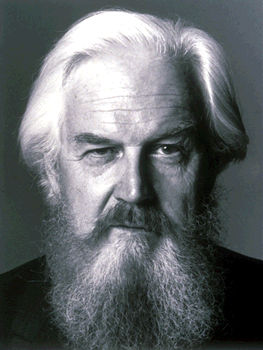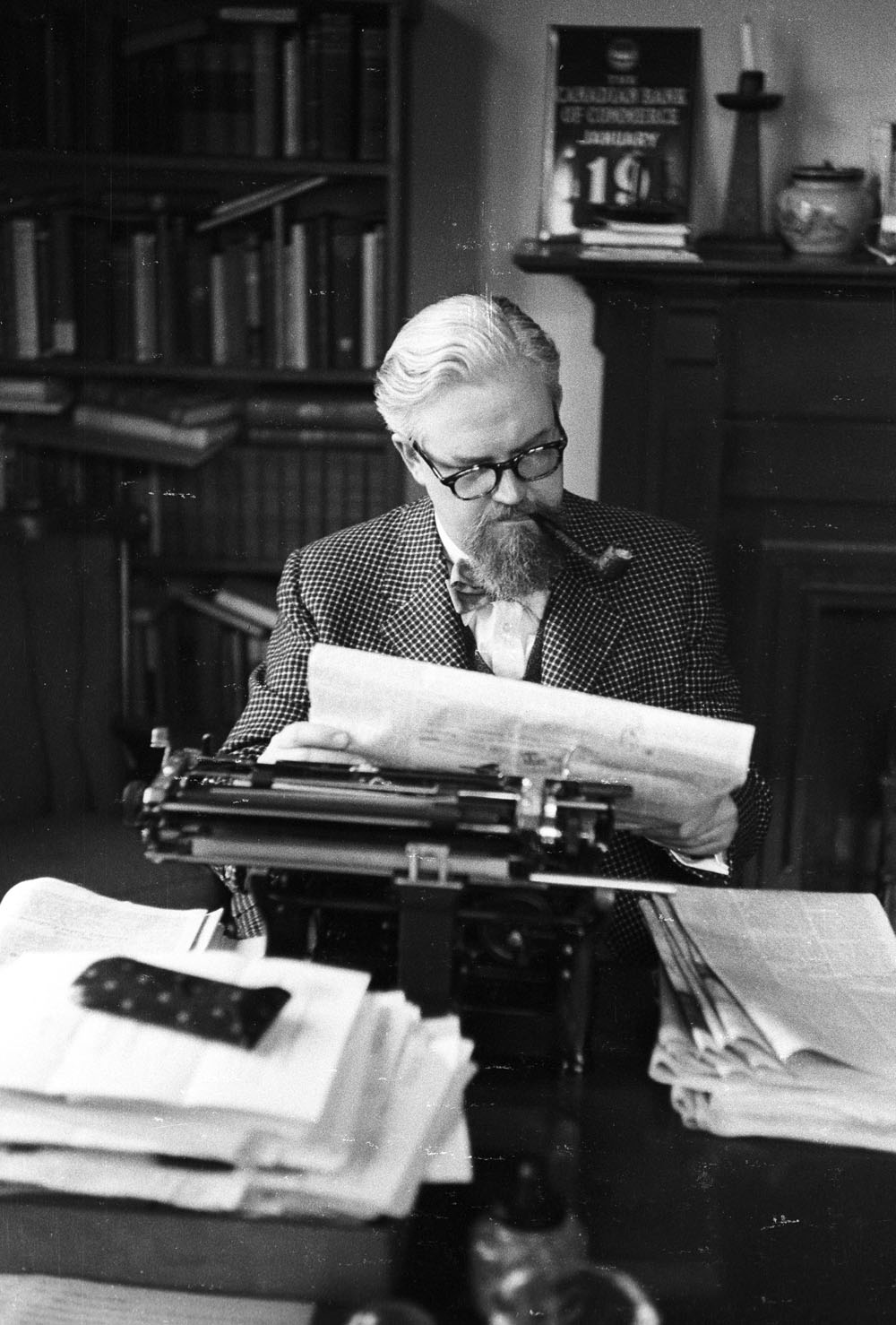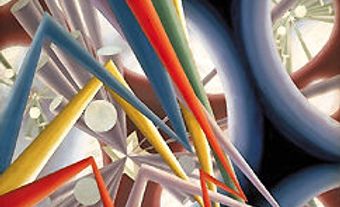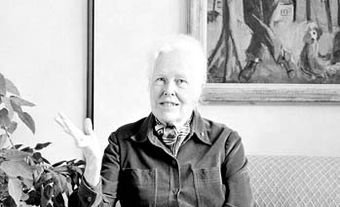
Robertson William Davies, CC, OOnt, writer, journalist, professor (born 28 August 1913 in Thamesville, ON 28 Aug 1913; died 2 December 1995 in Orangeville, ON). A Companion of the Order of Canada, winner of the Governor General’s Literary Award, and founding master of Massey College at the University of Toronto, Robertson Davies is widely acknowledged as one of Canada’s most brilliant and influential essayists and novelists.
Early Life and Education
Third son of Senator William Rupert Davies, Robertson Davies participated in stage productions as a child and developed a lifelong interest in drama. He attended Upper Canada College from 1926 to 1932 and went on to Queen's University from 1932 to 1935 as a special student not working towards a degree. He received a BLit in 1938 at Balliol College, Oxford. His thesis, Shakespeare's Boy Actors, appeared in 1939, a year in which he pursued an acting career outside London. He spent 1940 playing minor roles and doing literary work for the director at the Old Vic Repertory Company in London. That year he married Brenda Mathews, a woman he had met at Oxford, who was then working as stage manager for the theatre.
Return to Canada
Davies returned to Canada in 1940 as literary editor of Saturday Night. Two years later, he became editor of the Peterborough Examiner, a position that afforded him unlimited material for many characters and situations that appear in his novels and plays. While editing this paper (1940–55), and when he served as publisher (1955–65), Davies published 18 books, produced several of his own plays and wrote numerous articles for various journals.
Theatre
Davies moved from the theory of acting outlined in Shakespeare for Young Players (1947) to the writing of plays with Eros at Breakfast, a one-act play which won the 1948 Dominion Drama Festival Award for best Canadian play. Eros at Breakfast and Other Plays and award-winning Fortune, My Foe were published in 1949; At My Heart's Core, a three-act play based on the Strickland sisters (Agnes Strickland, Susanna Moodie and Catherine Parr Traill), appeared in 1950. Meanwhile, Davies collected some of his humorous essays (under the pseudonym Samuel Marchbanks) from the Examiner in The Diary of Samuel Marchbanks (1947), The Table Talk of Samuel Marchbanks (1949) and Samuel Marchbanks' Almanack (1967).
In 1960, Davies joined Trinity College at the University of Toronto, where he taught literature courses for the next 21 years. The next year he published a collection of essays on literature, A Voice from the Attic, and was awarded the Royal Society of Canada’s Lorne Pierce Medal for his literary achievements. In 1963, he became master of Massey College, the university's new graduate college. By 1967, he was made a Royal Society of Canada fellow and soon began receiving honorary degrees from many Canadian universities. Some of his best essays and speeches appeared later in One Half of Robertson Davies (1977), The Enthusiasms of Robertson Davies (1979) and The Well-Tempered Critic (1981). In them, Davies explores his many esoteric interests with characteristic wit.
Novels

Davies found his voice neither in drama nor in occasional humorous essays, but in fiction. His first three novels, later known as The Salterton Trilogy, were Tempest-Tost (1951), Leaven of Malice (1954), which won the Stephen Leacock Memorial Medal for Humour, - and A Mixture of Frailties (1958). These novels explore the difficulty of sustaining a cultural life in Canada.
During the 1950s, he played a major role in launching the Stratford Shakespeare Festival, serving on the board of governors and publishing three books about the Festival's early years (1953–55) with director Sir Tyrone Guthrie. He also continued to produce plays, none of which ranked with his novels.
In 1970, Davies drew on Jungian psychology (a preoccupation which replaced his earlier interest in Freud) to produce his best novel to date, Fifth Business. The novel depicts characters in roles that roughly correspond to Jungian archetypes, demonstrating Davies' belief that matters of the spirit are more important than worldly concerns. "Jung's thought is very expansive,” said Davies, “a sort of opening out of life, whereas so much psychoanalytical thinking is reductive: getting you back to the womb and a lot of trouble." He built on the success of Fifth Business with two sequels (the three later known as The Deptford Trilogy): The Manticore (1972), a novel cast in the form of Jungian psychoanalysis, which won the Governor General's Literary Award; and World of Wonders (1975). A seventh novel satirizing academic life, The Rebel Angels (1981), appeared at the close of Davies' academic career, and another, What's Bred in the Bone (1985), was published not long after and shortlisted for the 1986 Booker Prize. In 1983, Davies published The Mirror of Nature, a book of criticism that examines 19th-century melodrama.
Late Work
After his official retirement, he continued to write novels that extended his fame abroad: The Lyre of Orpheus (1988), completing what came to be known as The Cornish Trilogy (alongside What’s Bred in the Bone and The Rebel Angels); Murther and Walking Spirits (1991); and The Cunning Man (1994). When he died in 1995, Davies was in the process of writing a third novel that would have capped his Toronto Trilogy, which includes Murther and Walking Spirits and The Cunning Man. Published posthumously in 1996, The Merry Heart is a selection of speeches, reminiscences, parodies, book reviews and essays.

Davies was the first Canadian to become an Honorary Member of the American Academy and Institute of Arts and Letters. He was a Companion of the Order of Canada, an Honorary Fellow of Balliol College, and received honorary degrees from the University of Oxford, Trinity College in Dublin, and the University of Wales, as well as from 23 American and Canadian universities. His death on 2 December 1995 was marked in obituaries around the world and in Canada by national broadcasts of services in his honour. His work has been translated into 17 languages.

 Share on Facebook
Share on Facebook Share on X
Share on X Share by Email
Share by Email Share on Google Classroom
Share on Google Classroom


